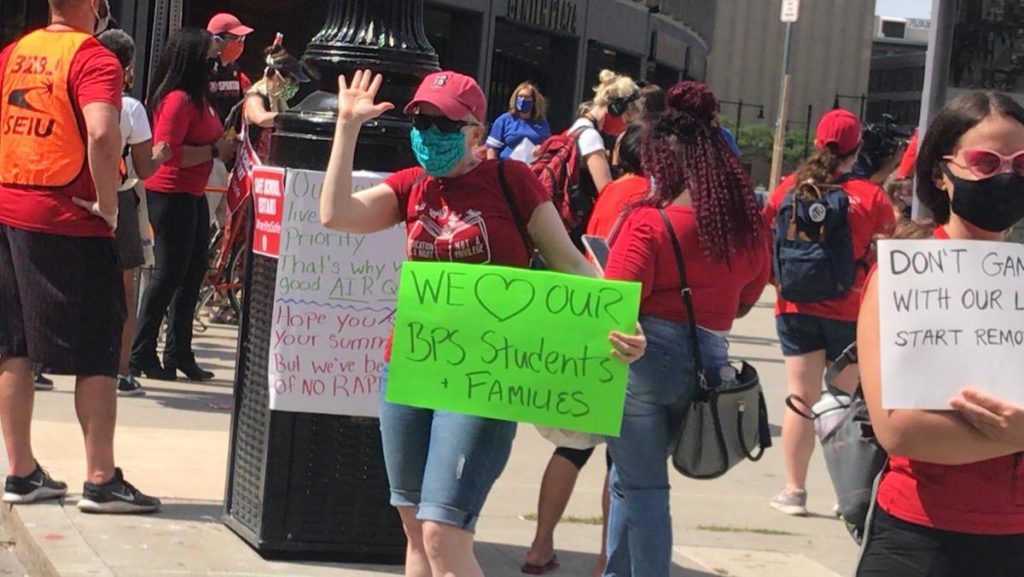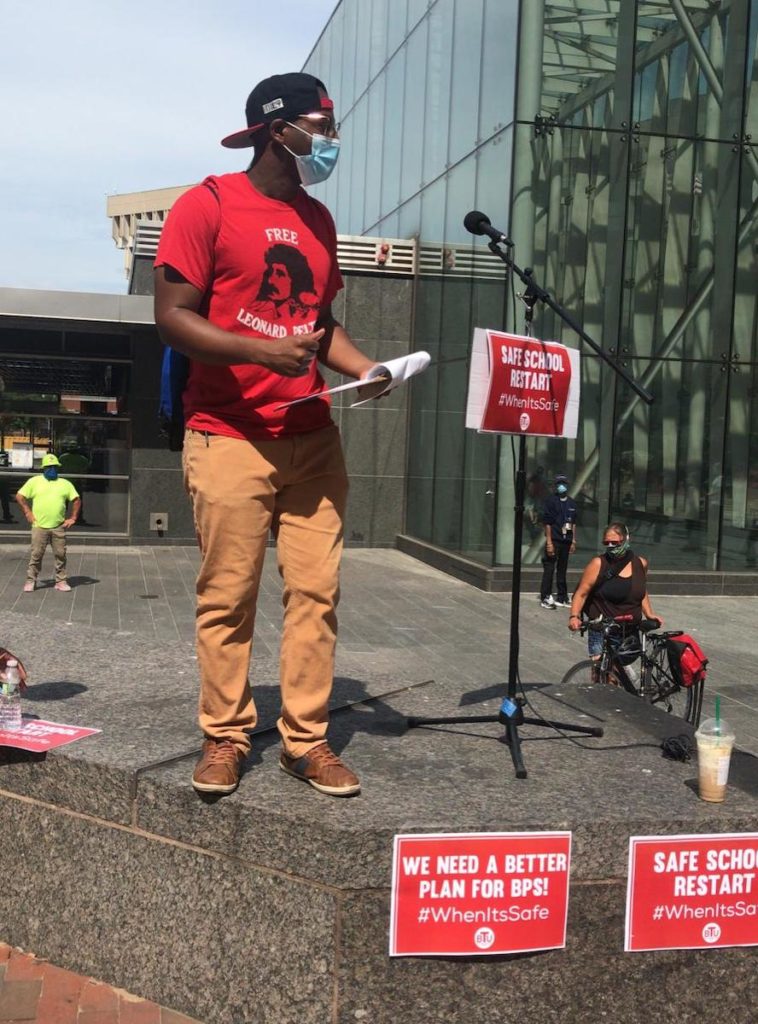“Six feet apart, not six feet under! The hopscotch plan is a blunder!”
More than 130 cars lined up in Boston’s Roxbury neighborhood on Aug. 13, adorned with posters and brightly painted windows that read “#WhenItsSafe” and “Black Lives Matter in School Too.” Honking and cheering, the caravan made its way through Nubian Square, and eventually stopped and circled City Hall where at least one hundred teachers, family members and allies gathered at safe distance to listen to Boston Teachers Union members speak on the dangers of reopening schools. Afterwards, a delegation of students, teachers, parents, and community members marched into City Hall to deliver the Boston Teachers Union’s proposal for a safe restart to Mayor Marty Walsh.
The BTU organized the rally to protest the mayor’s plan to have students and teachers return to school in the fall, which teachers have dubbed the “the hopscotch plan.” Students would alternate or “hopscotch” the days they receive lessons both in-person and online throughout the week, in an effort to maintain distance. Echoing teachers nationwide, Amrita Dani, a high school ESL teacher and BTU member told Liberation News, “It would be a total disaster for Massachusetts schools to open in person. This is going to cost lives, and our buildings have been neglected for years. We need to go remote and focus on serving our students and our community the best we can.”

Families, teachers and community members have struggled to have their voices heard in the planning process for months with little effect. After the rally and other organized actions by the BTU, the message began to resonate and the district slowly began to yield. The first concession was to grant teachers additional professional development days at the start of the school year. These days would ostensibly give educators more time to prepare for a safer start to the year — but to most educators, this is far from enough. Teachers in Quincy, Massachusetts have already been infected with the disease. Thousands of children have tested positive as well.
“We are advocating for a phased reopening plan that begins remote,” explains Cecil Carey, a BTU teacher and organizer. “It provides the resources and training to do remote learning right, and keeps families safe. The first priorities will be improving the infrastructure of our schools to ensure safety, and to start by bringing in our most vulnerable students who need to be in person the most.” Other demands include more school funding and training, a rent and mortgage moratorium, more widespread PPE and testing made available for communities, and removing police presence from school buildings.

School reopenings are indicative of a larger history of the treatment of public education in the United States. JD, a 9th grade history teacher and BTU member told Liberation News, “The ruling class is desperate for more people to go back to work so they can continue making immense profits at the expense of working people’s health and well-being. In order for this to happen, they need the children of workers to return to schools. Think of it as childcare.”
The BTU, The American Federation of Teachers Massachusetts and the Massachusetts Teachers Association have all declared that members will not be setting foot in unsafe buildings come fall. To teachers like Dani, these protests are necessities in a “system [that] puts profits over people over and over again… Until we address the public health emergency we are still in, we aren’t going to be able to safely reopen schools.”





